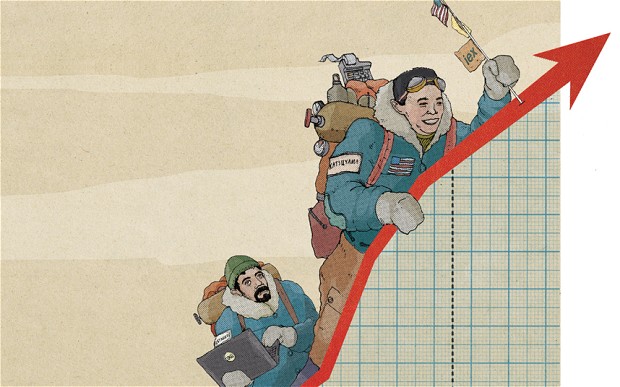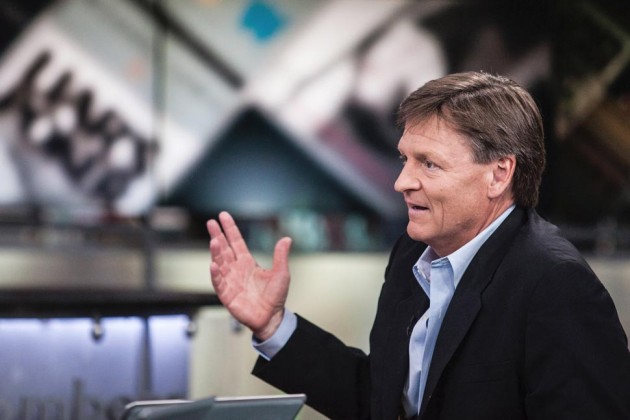The crisis and the stock market: the role of high-frequency trading
- Transfer
Note translator: We quite a lot and often talk about high-frequency trading and related technologies, in relation to Russia. However, it is quite difficult for us, with all our wishes, to cover all aspects of this interesting topic, especially what is happening abroad. Therefore, in addition to our translation section for foreign materials (most of them can be found here ), we decided to launch a new section in our blog on Habré, in which we will talk about interesting subject literature. We may or may not agree with the theses set forth in the books that we cover, but in order to form our opinions, we need to read them. Today we have the first issue, comments and suggestions on the format are welcome in the comments. Enjoy reading!
After the release of the bestselling book “Big game for a fall. The secret springs of financial disaster ”(The Big Short), in which Michael Lewis (Michael Lewis) debunked the myths of the era of the financial crisis, the author's interests shifted to other issues. And yet, there is no reason to doubt that Lewis continues to reflect on the role played by the crisis in modern markets. Lewis’s latest book, Flash Boys: A Wall Street Revolt , tells the story of Sergey Aleinikov, a Goldman Sachs programmer, imprisoned for stealing Goldman’s high-frequency trading code after being fired from an investment bank. Aleinikov’s story helps to more clearly present the “opaque” world of high-frequency trading. On Monday [ March 31, 2014 - approx.

] the book goes on sale. Its publisher was WW Norton & Co.
During a discussion with New York Times columnist Diana Henriques at the annual meeting of the Community of American Business Publishers and Authors in Phoenix, Lewis sparingly answered questions about the new book, but said the idea was based on an article from Vanity Magazine Fair, published last fall, can be inferred from a simple conclusion:
“I was interested in that after the greatest financial crisis of our time - in which Goldman Sachs played an important role - it turns out that if someone goes to jail, it’s the one who ate Goldman Sachs himself. ”
Lewis adds that after the financial crisis, high-frequency trading has forced markets to “adapt” to the new rules. In a subsequent “60-minute” interview, he states that high-frequency trading harms the average investor.

Michael Lewis An
extensive discussion during the Conference touched on other Lewis books, including MoneyBall. How Math Changed the World's Most Popular Sports League ”(Moneyball), which tells the story of how Bill Beane, general manager of the Oakland A baseball team, first began using statistics to find underrated players.
Lewis declares: he first realized that the story that fascinated him was worth writing a book when he had to wait in the locker room of a baseball team and see all the players naked - this moment he called disgusting. After he told Bean how repulsive the team seemed to him, Lewis received an unexpected answer: this, according to Bean, was the whole point of his strategy. If players look like excellent athletes, they are more likely to be judged by the market. But the unattractive features of the team - such as, for example, the presence of a club-footed player - allowed Athletics to create a strong team, the maintenance costs of which amounted to a tenth of the budgets of more promoted and popular teams. This moment was an insight for Lewis.
After the release of the bestselling book “Big game for a fall. The secret springs of financial disaster ”(The Big Short), in which Michael Lewis (Michael Lewis) debunked the myths of the era of the financial crisis, the author's interests shifted to other issues. And yet, there is no reason to doubt that Lewis continues to reflect on the role played by the crisis in modern markets. Lewis’s latest book, Flash Boys: A Wall Street Revolt , tells the story of Sergey Aleinikov, a Goldman Sachs programmer, imprisoned for stealing Goldman’s high-frequency trading code after being fired from an investment bank. Aleinikov’s story helps to more clearly present the “opaque” world of high-frequency trading. On Monday [ March 31, 2014 - approx.

] the book goes on sale. Its publisher was WW Norton & Co.
During a discussion with New York Times columnist Diana Henriques at the annual meeting of the Community of American Business Publishers and Authors in Phoenix, Lewis sparingly answered questions about the new book, but said the idea was based on an article from Vanity Magazine Fair, published last fall, can be inferred from a simple conclusion:
“I was interested in that after the greatest financial crisis of our time - in which Goldman Sachs played an important role - it turns out that if someone goes to jail, it’s the one who ate Goldman Sachs himself. ”
Lewis adds that after the financial crisis, high-frequency trading has forced markets to “adapt” to the new rules. In a subsequent “60-minute” interview, he states that high-frequency trading harms the average investor.

Michael Lewis An
extensive discussion during the Conference touched on other Lewis books, including MoneyBall. How Math Changed the World's Most Popular Sports League ”(Moneyball), which tells the story of how Bill Beane, general manager of the Oakland A baseball team, first began using statistics to find underrated players.
Lewis declares: he first realized that the story that fascinated him was worth writing a book when he had to wait in the locker room of a baseball team and see all the players naked - this moment he called disgusting. After he told Bean how repulsive the team seemed to him, Lewis received an unexpected answer: this, according to Bean, was the whole point of his strategy. If players look like excellent athletes, they are more likely to be judged by the market. But the unattractive features of the team - such as, for example, the presence of a club-footed player - allowed Athletics to create a strong team, the maintenance costs of which amounted to a tenth of the budgets of more promoted and popular teams. This moment was an insight for Lewis.
